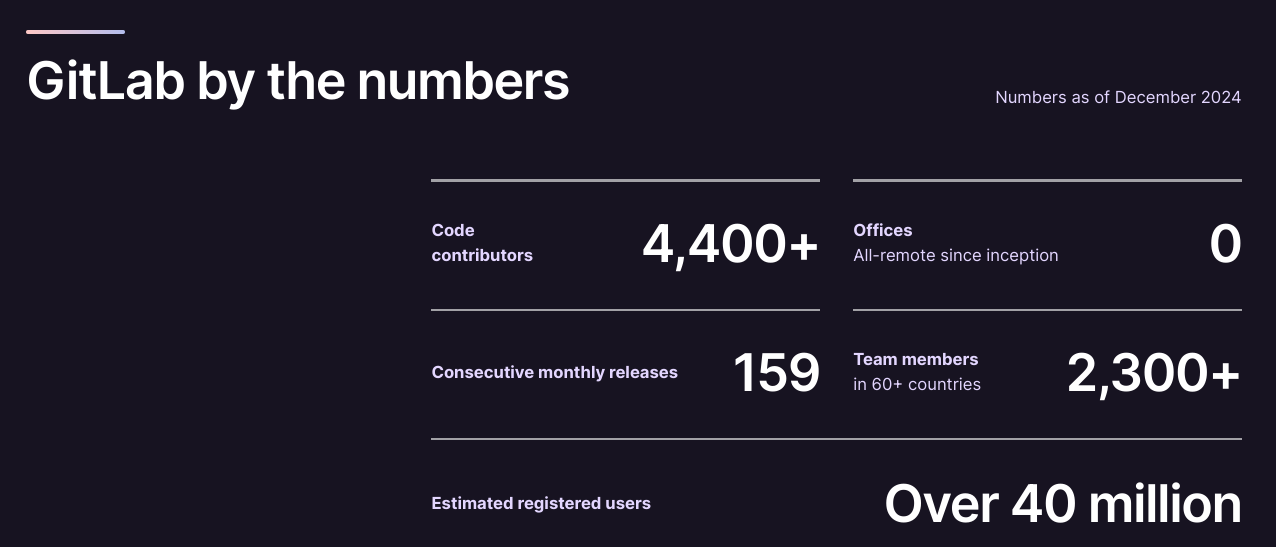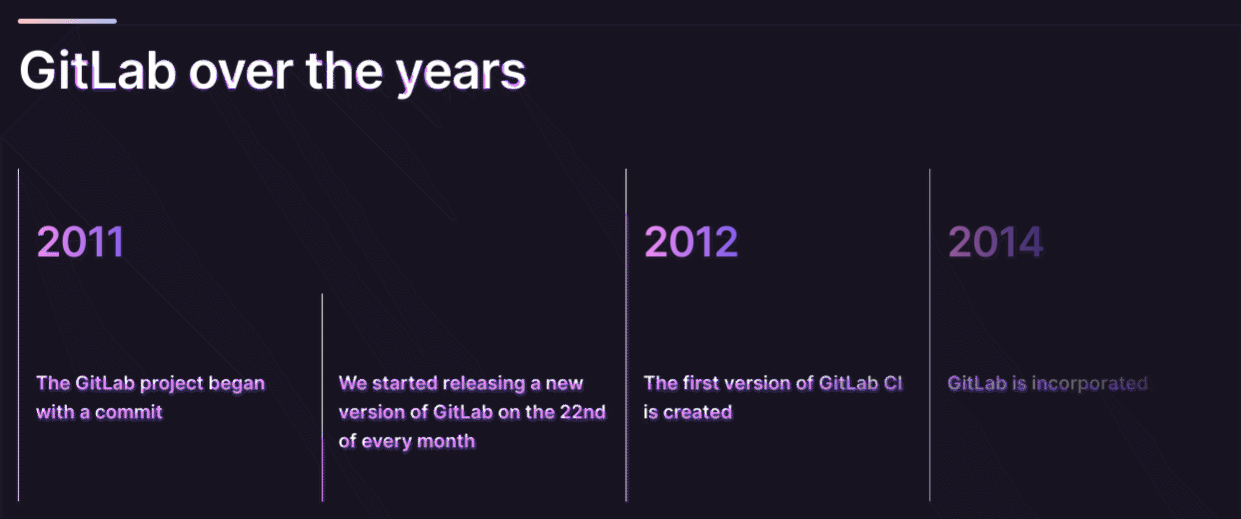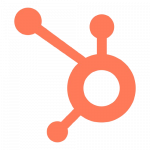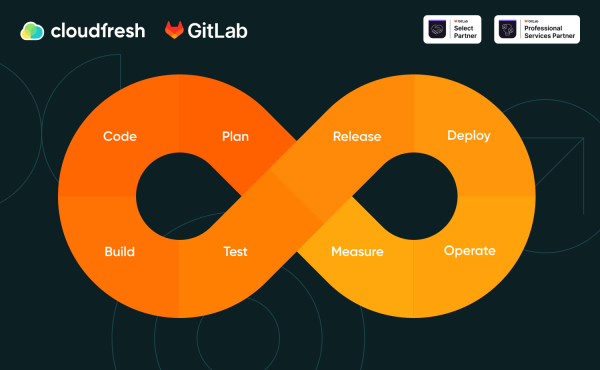10 Reasons Why CI/CD is Important for DevOps
What is Gitlab?
GitLab is a cloud-based code repository and collaborative DevOps platform that allows developers to build software fast and serve customers effectively. GitLab offers a friendly interface, one point of collaboration, and one place to deploy to any cloud. It becomes the one comprehensive platform to secure your entire software supply chain for the users.
GitLab enables developers with security, continuous integration, many application development tools, and other DevOps features. For more, it offers project management tools to manage your development team within a single DevOps architecture.
So, what is GitLab?
How GitLab Works
The essential Gitlab functionality is the repository management system where developers can browse, audit, merge, and perform daily tasks that often require a command-line interface (CLI). The core part of the front-end user experience is based on Ruby on Rails, which launches tasks via the special pool on a Redis server to a backend helper written on Go called GitLab Runner. PostgreSQL stores all the data about users, repositories, wiki pages, and other files. In its turn, Git manages all the repositories via the GitLab Shell system.
How Did It Start?
Everything started in 2011 from an open-source project that aimed to help one team of developers to collaborate. Three years later, in 2014, Ukrainian programmer Dmytro Zaporozhets and Dutch entrepreneur Sid Sibrandji founded GitLab. It has since become a platform millions worldwide use for faster software delivery, higher-level security, and improved compliance features.
Since the beginning, the company has been run by people who believe in remote work, open source, DevOps, and iteration. So, instead of focusing solely on the individual toolset components as such, the GitLab team does everything in its power to provide the end user with the possibility to ship great code, faster.

GitLab Integrations
Even though GitLab already offers developers the immersive functionality of its platform, it has multiple sets of integrations that enrich your DevOps experience. You can authenticate against LDAP or OAuth2, add Akismet’s filtering service in comments and feedback forms to reduce spam in public projects and issue tracking, and integrate GitLab with task management platforms such as Trello. GitLab also offers a query language for APIs, GraphQL, that developers can use to request the exact data they need and therefore limit the number of requests you need. And if you are unfamiliar with GraphQL, you can use GitLab technical documents that help you get started with your journey to additional APIs and various integrations.
What Is GitLab Used For: Features and Benefits
We have already emphasized that first and foremost, GitLab is about an efficient, secure collaboration and transparency at every stage, but what differentiates GitLab from other DevOps platforms, and what are its essential advantages?
- A self-hosted, on-premises environment where the developers can run with ease.
- An in-depth Source Code Management, which allows you to track a running history of changes, resolve conflicts, and merge branches with ease.
- Continuous Integration (CI) provides an automated pipeline for compiling, testing, and validating software builds.
- Explicit permissions allow you to restrict merge and push to specific users.
- Rich project documentation with wiki.
- Free static websites hosted from Git repositories that are possible with GitLab Pages.
- Automatic secrets detection and security testing that keeps the codebase secure and protected.
- Time tracking, GitLab analytics on productivity, and integration with Jira or Trello keep your team on track.
- The great variety of enterprise plans with features such as in-depth contribution analytics, group and project insights, code quality reports, GitLab code suggestions, and compliance tracking.
What Is GitLab’s Mission?
Gitlab’s mission is to enable everyone to contribute to individual and corporate growth and development. When everyone can contribute, the rate of innovation dramatically increases. Inspired by this value, the company’s 10-year product vision was based on the principles of contribution.
Nowadays, GitLab is the DevSecOps Platform that enables enterprises to maximize their bottom line by delivering software faster and more efficiently while strengthening security and compliance. The company expansion aimed to progress into such a DevSecOps platform that could replace any other similar point solution, so every piece of GitLab functionality just had to become perfect and lovable by its users.
So, what is GitLab planning in terms of its 3-year strategy? As of December 2024, the company focuses on five key pillars to drive growth and innovation. First, increasing Stages per Organization (SpO) is central to boosting customer upgrades to paid packages, as adding a stage triples conversion rates. Emphasis is on driving adoption of key stages like Create to Verify and Verify to Release, which unlock additional stages and enhance Net ARR, customer satisfaction, and retention. Second, GitLab leverages its unique single-application approach to create interconnected, differentiated features that competitors cannot replicate. To strengthen this advantage, GitLab plans significant R&D investment over the next 2–3 years.
Third, GitLab will harness its open-source community by tiering stage value strategically, prioritizing Core adoption during early-stage development to accelerate maturity, followed by layering premium features to encourage upgrades. Fourth, it aims to maintain depth in leading stages like Verify and Create while rapidly completing categories for Plan, Release, and Secure to improve customer retention and satisfaction. Lastly, GitLab prioritizes GitLab-hosted solutions, driven by SaaS growth, with enterprise-grade security, feature parity, and easy migration paths from self-managed deployments. New GitLab-hosted services will add value through offerings like automated cloud backups and deployment options tailored to regulatory, security, and data residency needs.
GitLab also endeavors to support data scientists and engineers as they support software developers today. Why so? The company believes that data and machine learning/AI models will increasingly power software experiences over time, and customers will need the ability to manage data and its associated ML/AI models as thoroughly as software development requires now. As automation is a core of GitLab processes, the company also expects to automate the handling of product usage data collection, GDPR compliance of data under management, cookie and privacy management, experimentation tools, A/B testing, and many other processes.
And the other strategy of GitLab is becoming a digital content creation platform that could support low-code/no-code development, design creation, enhanced content management, and other creative media.
Gitlab is fast in its journey of creating the functionalities of users’ dreams, leveraging the best practices of 100,000 organizations co-developing the DevSecOps platform. The company aimed to mature product surface area over time while focusing on customer results. The number of customers and the speed of growth speak for themselves.

GitLab and Cloudfresh
Cloudfresh is a certified Consulting, Support, and Implementation GitLab Partner. We empower organizations to get the most out of GitLab solutions. With the GitLab license and our help, you can bring teams together to shorten cycle times, reduce costs, strengthen security, and increase developers’ productivity. Check out our professional GitLab services.
Our GitLab Experts will advise, manage, and implement high-quality GitLab technical solutions. Use this link for a 30-day free trial of GitLab’s self-managed instance—or this one for 60 days of a SaaS version—and reach out for professional onboarding, consulting, expertise, and technical support from Cloudfresh.
Start a successful DevOps transformation exploring GitLab tooling with our guidance!














